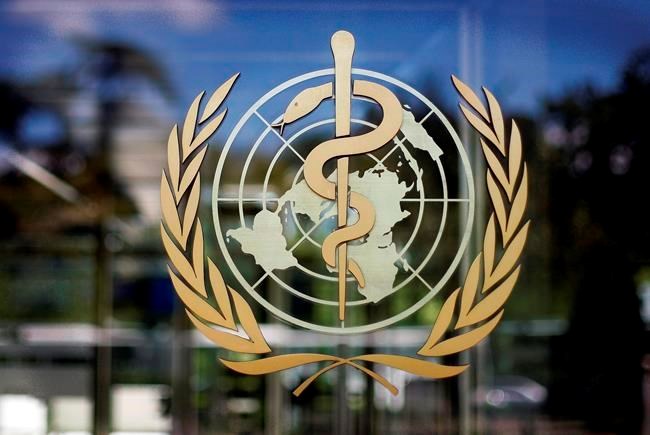VANCOUVER — The Greek alphabet arrived on the global stage and into everyday lexicon riding on waves of the novel coronavirus as the World Health Organization began naming variants in the Glagolitic script.
As the variants mutated, from Alpha to Delta and then Omicron, people began taking note of the 24 Greek letters. Omicron is the 15th letter of the Greek alphabet. Omega is the last.
In June, an expert committee led by a working group of the World Health Organization announced they would be using the Greek alphabet to name the variants.
"These will be easier to remember and more practical to use than alphanumerical designations," said the paper about naming the variants.
"The Greek alphabet is well established as being generic, as the names of its individual letters have already been used for a multitude of purposes."
Mark Pallen, one of the authors of the paper, said the scientific method of using letters and numbers was cumbersome and confusing. Most people resorted to using the name of the place where the variant was first discovered, creating a stigma for that country, he noted.
"And so, there was a recognition that something easier and snappy was needed."
Soon after, the World Health Organization decided to use Greek letters.
It was a "bit of an oversight," he said in an interview, that nobody asked permission from the Greeks.
"And we fell into the mistake, which is quite a common mistake,” said Pallen, a professor of microbial genomics at the University of East Anglia in Norwich, England. “When people talk about the Greeks, they often mean the ancient Greeks, and they forget that the Greeks still exist as a nation."
But it seems the Greeks shrugged off the association of their language to the variants with classic stoicism.
Panayiotis Pappas, chair of linguistics at Simon Fraser University who uses nonbinary pronouns, said the "truth is that it's unremarkable" to any Greek that the letters are used to name deadly variants.
And it's not just the letters, as "so many" Greek words are used in science, Pappas said in an interview.
The linguistics professor reads Greek newspapers and scoured them for reaction to the letters being used to name the variants.
"There are lots of other deadly diseases that have Greek names, and we don't complain about that."
Pappas grew up in northern Greece on a small island called Thasos before moving to the United States for their education and then taking a job at Simon Fraser University in Burnaby, B.C.
"Greeks don't even care if the words get mispronounced or anything like that," Pappas said.
"They've always considered it as a mark of pride that, you know, we have a civilization that's about 3,000 years old and that we're able to contribute to Western science."
Tom Archibald, a mathematics professor at Simon Fraser University, studied Greek in high school in Ontario for three years. His knowledge of modern Greek is "pretty bad", he said, but he can read it with the aid of a dictionary.
"I mean, every working mathematician basically knows the Greek alphabet, even if they can't say it in order."
Pappas said the use of the Greek alphabet to name variants has led to more interest in linguistic courses.
"The one thing that we have seen a bit of an increase in linguistics in our courses, which explain language origins and word origins, what we call the science of etymology, as more students are interested in the health sciences fields, where a lot of the background of the English word is either Greek or Latin," the professor said.
"We offer courses that go through those explanations, and those have seen quite a bit of a rise in popularity. People don't want to learn the language, per se, but they do want to understand where these words come from."
This report by The Canadian Press was first published Dec. 24, 2021.
Hina Alam, The Canadian Press
